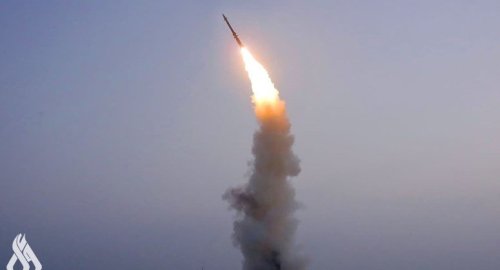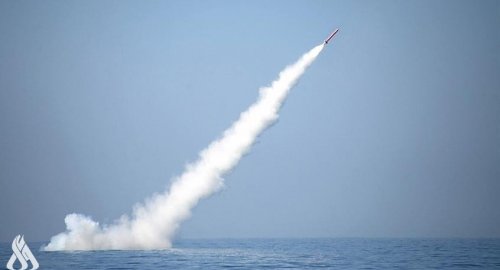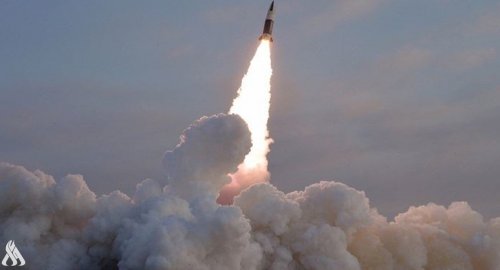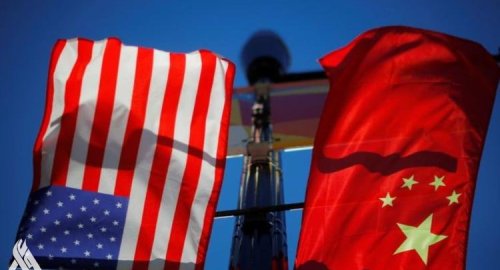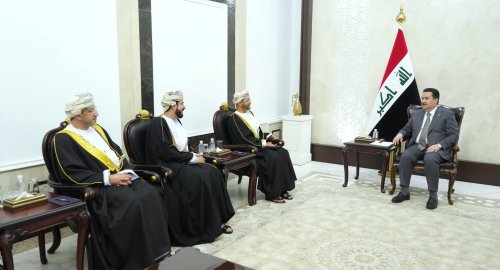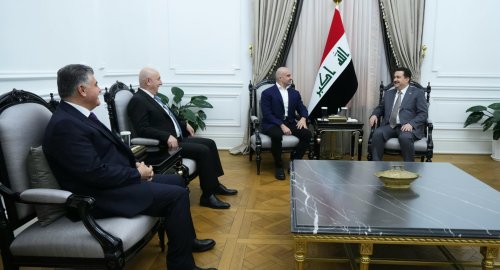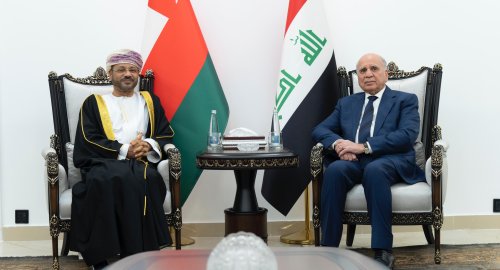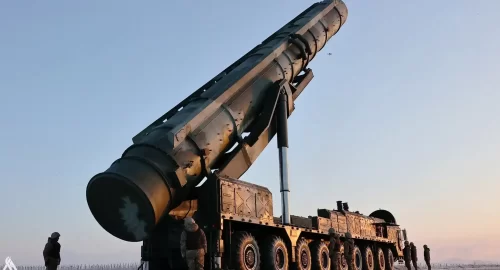
North Korea launches three ballistic missiles as top U.S. diplomat visits Seoul

- 18-03-2024, 08:41
INA- sources
North Korea fired off at least three apparent ballistic missiles on Monday, Japan's Defense Ministry said, as U.S. Secretary of State Antony Blinken visited Seoul for a multinational democracy summit.
All three missiles fell into the Sea of Japan just minutes after their launches, the ministry said, with the weapons traveling about 350 kilometers each before landing in waters outside Japan's exclusive economic zone, which extends 200 nautical miles (370 km) from its coast.
Speaking in parliament, Prime Minister Fumio Kishida slammed the North's latest launch, the nuclear-armed country's first firing of ballistic missiles since Jan. 14, when it tested what it said was a solid-fueled intermediate range ballistic missile.
"This series of North Korean actions threatens the peace and security of our region and the international community and must not be tolerated," Kishida said, adding that Japan was continuing to analyze the launches, working closely with the U.S. and South Korea.
At a news conference later Monday, Chief Cabinet Secretary Yoshimasa Hayashi, the government’s top spokesman, said Tokyo had “strongly protested and condemned” the launches, adding that Japan was keenly watching the North’s next moves, including the possibility of more satellite launches following a successful attempt at putting a military spy satellite into orbit in November.
South Korea's military said the North had fired “multiple short-range ballistic missiles" that traveled around 300 km, the Yonhap news agency reported.
"North Korea fired at least three missiles, and their trajectories were similar to those of KN-24," Yonhap quoted a senior South Korean military official as saying.
The KN-24, a short-range ballistic missile with an estimated 410-km range, is believed to have been exported to Russia, which has used it on the battlefield in Ukraine.
In Washington, a State Department spokesperson blasted the launches, but noted that the U.S. remains “committed to a diplomatic approach" to dealing with the North, urging it “to engage in dialogue.”
Blinken was visiting the South Korean capital for the Summit for Democracy, an initiative spearheaded by U.S. President Joe Biden that brings together democratic partners across the globe. The top U.S. diplomat was scheduled to meet with his South Korean counterpart, Foreign Minister Cho Tae-yul, later in the day.
Pyongyang has conducted military exercises in recent days, with leader Kim Jong Un observing paratrooper drills and even getting behind the controls of a new battle tank.
Those exercises come on the heels of large-scale joint U.S.-South Korean military drills that wrapped up on Thursday.
North Korea has conducted a spate of weapons tests this year, including launches of new strategic cruise missiles and submarine-launched weapons designed to carry small nuclear bombs.
In recent months, Kim has also stepped up his rhetoric against the South, labeling Seoul Pyongyang's "primary enemy" and abolishing agencies focused on reunification, while also threatening to enshrine in his country's constitution a goal of “completely occupying, subjugating and reclaiming” its southern neighbor.
The unusual rhetorical shift has prompted some longtime North Korea observers to say that Kim, disillusioned with diplomacy, is girding for conflict.
source: the japan times
China Says It 'Firmly Opposes' US Military Aid To Taiwan
- International
- 07:36
First joint picture of Greenland Ice Sheet melting, ESA
- Multimedia
- 09:28
US Central Command: We killed ISIS terrorist leader Abu Yusuf in Syria
- International
- 24/12/20
Liverpool compete with Real Madrid to sign Olympique Lyonnais star
- Security
- 24/12/19
ISC, ADX discuss Strengthening Economic Ties
- Economy
- 24/12/16
Iraq assumes presidency of Arab Investment Company’s Executive Board
- Economy
- 24/12/17
